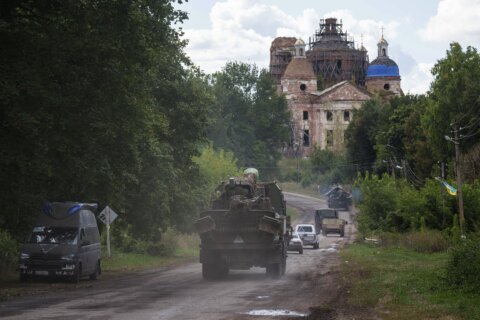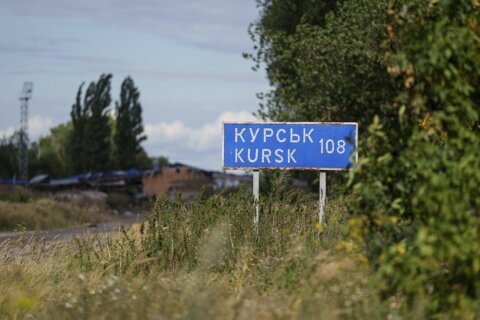BUDAPEST, Hungary (AP) — Hungarian Prime Minister Viktor Orbán on Friday pushed back against some NATO proposals that would allow Ukraine to use Western weapons to strike targets within Russia, saying that such plans have Europe “inching closer to destruction.”
The nationalist leader has long opposed Western countries supplying Ukraine with military aid, and threatened to derail European Union financial support to Kyiv and the passing of sanctions against Moscow.
He has also maintained close ties with Russian President Vladimir Putin despite his full-scale invasion of Ukraine, while ramping up energy deals with Moscow at a time when most EU countries have sought to limit the use of Russian fossil fuel.
During a Friday interview on state radio, Orbán said that French President Emmanuel Macron’s stance that he wouldn’t rule out sending troops to Ukraine, as well as a NATO proposal that would allow Kyiv to strike military bases inside Russia with sophisticated long-range weapons provided by Western partners, risked escalating the war in Ukraine into a global conflict.
“War is a monster that is constantly hungry, it must be fed, and it must be fed with money. And I see that the Americans and the Democratic government of the United States, and the leaders of the European Union, are ready to feed it,” he said.
Orbán is campaigning for the European Parliament election, which will be held in Hungary on June 9. He has cast the election as an existential struggle between war and peace, and focused his campaign on fears that Western support for Ukraine could cause an escalation of Russia’s war.
He has portrayed his party as unique in calling for an immediate end to the fighting in Ukraine. But critics say his proposals amount to capitulation to Moscow, which would allow Russia to retain territories it has occupied in Ukraine and embolden it further.
The question of whether to allow Ukraine to hit targets on Russian soil with Western-supplied weaponry has been a delicate issue since Moscow launched its full-scale invasion on Feb. 24, 2022.
Western leaders have mostly shrunk from taking the step over fears it could provoke Putin, who has repeatedly warned that the West’s direct involvement could put the world on a path to nuclear conflict.
But the Kremlin’s forces in recent months have exploited Ukrainian shortages in troops and ammunition after a lengthy delay in U.S. military aid, and Western Europe’s inadequate military production slowed crucial deliveries to the battlefield.
Copyright © 2024 The Associated Press. All rights reserved. This material may not be published, broadcast, written or redistributed.







